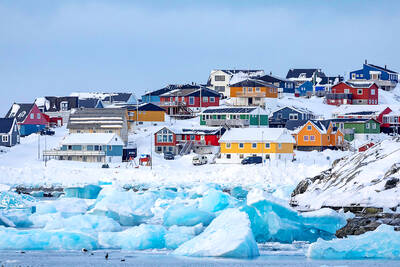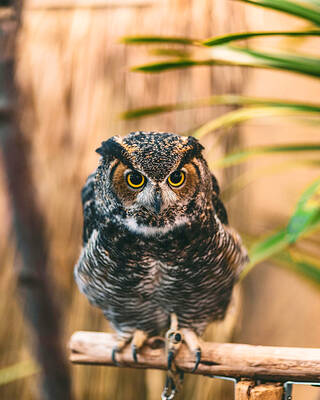"Wake up, Mark!" Kathleen yelled."OK, Mark, last weekend you learned how to swim, so there's no reason to be afraid of the beach. Let's go," Kathleen said, as she pulled him toward the sand.
"Yes, but look at all the sand! It's going to get in all of our stuff," Mark answered.
"This is going to be fun!" Kayleen said. On the beach, Mark found a place to put up their beach umbrella and put down their beach chairs. A crab came out of its hole and looked up at him.
"Hello," it said, waving at Mark with one of its claws.
"Eek!" yelled Mark. "Kathleen, it's trying to pinch me!"
"Don't worry, I never pinch elephants," the crab said. "Welcome to my beach."
"Thanks," said Kathleen, "but we can't stay and talk. We're going to swim out to those rocks."
"Oh, I don't think that's a good idea," said the crab. "There is no lifeguard at this beach."
"Well, we both know how to swim," answered Kathleen as she pulled a very scared-looking Mark toward the water.
"Watch out, there's a strong current!" the crab yelled after them. Mark and Kathleen swam out to the rocks, but when they got there, they were very tired. They rested and then started swimming toward the shore, but the tide had changed and the current had gotten much stronger.
"Help!" Mark yelled, and even Kathleen looked scared.
"Swim toward the side!" the crab yelled from the shore. (Kayleen Hartman, Staff writer)
「馬克,起床了。」凱薩琳大叫一聲。她說:「好啦,馬克,上週末你已經學到了如何游泳,所以沒有理由害怕海灘。我們走吧!」她拉著馬克往沙灘上走。
馬克回答:「是啊,可是看看這些沙子!沙子會跑進我們的東西裡。」
凱薩琳說:「一定很好玩的!」在沙灘上,馬克找了個地方來立起沙灘傘、放置沙灘椅。一隻螃蟹從洞裡爬出來,抬頭望著他。
螃蟹說:「哈囉!」牠舉起一隻螯向馬克揮手。
「啊!」馬克大叫:「凱薩琳,牠想要夾我!」
「別擔心,我才不會夾大象,」螃蟹說:「歡迎來到我的海灘。」
「謝謝,」凱薩琳說:「不過我們不能留下來聊天。我們要游到岩石那邊。」
「噢,我認為這不是好主意。」螃蟹說:「這個海灘沒有救生員。」
凱薩琳回答說:「我們都知道怎麼游泳。」她拉著看起來相當害怕的馬克往水裡去。
螃蟹在他們後面叫著:「小心,那裡的水流很強!」馬克和凱薩琳往岩石那裡游,不過他們抵達時,感到很累。他們休息了一下,開始往岸上游,不過浪潮卻發生了變化,水流愈來愈強。
馬克大喊:「救命!」連凱薩琳看起來都很害怕。
螃蟹在岸邊喊著:「往旁邊游!」 (翻譯:賴美君)

US President Donald Trump has renewed his ambition to take control of Greenland for national security reasons and questioned whether Denmark has any legal right to the Arctic island. The debate has revived scrutiny of how Greenland became part of Denmark, its current self-rule and path to independence, and Washington’s military footprint. HOW DID DENMARK GET GREENLAND? Greenland was inhabited by Inuit peoples from Asia and North America intermittently from around 2,500 BC. Around 985 AD, Vikings led by Erik the Red settled in southern Greenland, farming and building churches. Around the same time, ancestors of today’s Inuit arrived, living as hunters

A: Bloomberg just released its annual travel guide, titled “25 Best Places to Travel in 2026.” What were the best Asian destinations? B: There were actually six Asian hotspots: Taiwan’s Taipei, Malaysia’s Penang, Kazakhstan’s Almaty, Indonesia’s Rote Island, India’s Tiger Reserves, and Oman. A: With its mix of traditional food and modern cuisine, Taipei has become a rising food capital in Asia. B: As Bloomberg reported, “Taiwan is a place that bubbles up in culinary conversation because of its famed beverage, bubble tea, and its early adoption of modern night markets.” A: And Din Tai Fung has now

Owls have long fascinated people with their distinctive appearance and mysterious habits. These nocturnal birds possess large, round eyes and a flat facial disc. Their feathers come in shades of brown, gray, or white, helping them blend easily into the darkness. The most remarkable trait of owls is that they can turn their heads without damaging blood vessels. Contrary to popular belief, they can only rotate their heads up to 270 degrees, not 360 degrees. Owls have 14 cervical vertebrae, which is twice as many as humans. This special physical structure compensates for their inability to move their eyes within their

1. 展出的是幾幅張大千的名畫。 ˇ There are some masterpieces painted by Chang Dai-chien on exhibition. χ There are some masterpieces painting by Chang Dai-chien on exhibition. 註:現在分詞 painting 表明主動的或未完成的動作,這裏必須用過去分詞。現代英語裡,正句裡的 painted 一字,往往略去。若將 painting 視為名詞,則應加s — paintings. 2. 書前面有簡短的序言。 ˇ There is a short foreword preceding the book. χ There is a short foreword preceded the book. 註:precede 作「在……之前」解。a short foreword 是放在述詞後的主詞,應用現在分詞 preceding 表明主動的動作,句義與 There is a short foreword which precedes the book. 相同。 3. 你知道昨天發生的事故有誰在裡面嗎? ˇ Do you know anyone who was in the accident that happened yesterday? χ Do you know anyone who was in the accident happened yesterday? 註:錯句中的 happened 是過去分詞,一般過去分詞形式有被動的意義,但 happen 是不及物動詞,不能用作被動形式。若用現在分詞 happening 則表示未完成的動作,與中文原意不合。 請參考下列例句: 我上個月發表的有關創造力的文章,你讀過沒? ˇ Have you read my article about